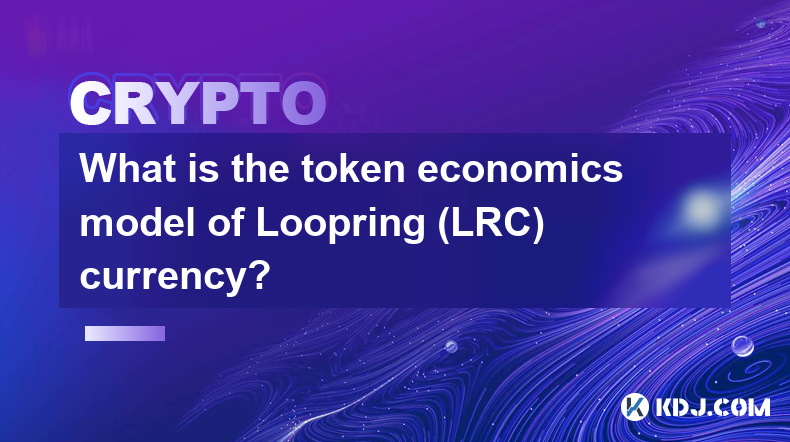-
 Bitcoin
Bitcoin $94,873.9084
0.51% -
 Ethereum
Ethereum $1,823.9995
0.80% -
 Tether USDt
Tether USDt $1.0000
-0.02% -
 XRP
XRP $2.1410
-0.68% -
 BNB
BNB $598.4937
2.11% -
 Solana
Solana $147.1023
2.20% -
 USDC
USDC $1.0000
0.00% -
 Dogecoin
Dogecoin $0.1711
0.18% -
 TRON
TRON $0.2486
0.86% -
 Cardano
Cardano $0.6652
-1.53% -
 Sui
Sui $3.4394
5.60% -
 Chainlink
Chainlink $13.6901
-1.35% -
 Avalanche
Avalanche $19.7402
-0.48% -
 Stellar
Stellar $0.2594
-2.50% -
 UNUS SED LEO
UNUS SED LEO $8.6827
-4.28% -
 Shiba Inu
Shiba Inu $0.0...01274
0.83% -
 Toncoin
Toncoin $2.9666
-1.69% -
 Hedera
Hedera $0.1738
-1.59% -
 Bitcoin Cash
Bitcoin Cash $354.0456
-0.64% -
 Hyperliquid
Hyperliquid $20.3829
2.75% -
 Litecoin
Litecoin $83.8543
-1.54% -
 Polkadot
Polkadot $3.9298
0.38% -
 Dai
Dai $1.0000
0.00% -
 Monero
Monero $277.0562
-0.80% -
 Bitget Token
Bitget Token $4.3018
-0.43% -
 Ethena USDe
Ethena USDe $1.0004
-0.01% -
 Pi
Pi $0.5881
-0.39% -
 Pepe
Pepe $0.0...07957
-1.35% -
 Bittensor
Bittensor $374.8425
9.82% -
 Uniswap
Uniswap $4.9916
-0.03%
What is the token economics model of Loopring (LRC) currency?
The Loopring token economics model is meticulously crafted to foster a thriving ecosystem by incentivizing participation, rewarding liquidity, and empowering token holders in decision-making.
Dec 08, 2024 at 03:10 am

Understanding the Loopring (LRC) Token Economics Model
Loopring (LRC) is an Ethereum-based protocol that enables the creation of decentralized exchanges (DEXs) and aims to provide a fast, scalable, and secure trading platform for digital assets. To facilitate its operations, Loopring utilizes a native token called LRC, which serves multiple functions within its ecosystem and plays a crucial role in maintaining the protocol's stability and governance.
The Token Economics Model of Loopring (LRC) Currency
The Loopring token economics model is carefully designed to incentivize network participants and ensure the protocol's long-term sustainability. Here are the key aspects of LRC's tokenomics:
1. Token Distribution
- Total Supply: 1.375 billion LRC
Distribution:
- Token Sale: 49.3%
- Loopring Foundation: 25%
- Team and Advisors: 19%
- Liquidity and Market Making: 3.7%
- Community Incentives: 3%
2. Token Functionality
- Transaction Fees: LRC is used to pay for transaction fees on the Loopring protocol. These fees cover the gas costs associated with executing trades and incentivize node operators to provide liquidity.
- Staking: LRC holders can stake their tokens to become "guardians" and earn rewards from protocol revenue. Guardians participate in protocol governance and help secure the network.
- Governance: The Loopring DAO (Decentralized Autonomous Organization) allows LRC holders to participate in decision-making processes and vote on protocol upgrades and development proposals.
3. Token Utility
- Network Participation: Running a Loopring node to facilitate trades requires LRC collateral. This ensures that node operators have a financial stake in the protocol and discourages malicious behavior.
- Liquidity Provision: Market makers can earn rewards by providing liquidity to Loopring DEXs. Staking LRC increases their staking rewards and allows them to participate in governance.
- Scalability Incentives: Loopring's "zkRollup" technology relies on off-chain computation to achieve high transaction throughput. LRC holders can stake their tokens to contribute to these off-chain computations and earn rewards.
4. Token Value Accrual
- Protocol Revenue Sharing: A portion of the protocol fees generated by Loopring DEXs is distributed to LRC holders who stake their tokens as guardians. This reward mechanism aligns the interests of token holders with the long-term success of the protocol.
- Demand for Network Services: As the Loopring protocol gains adoption and more users engage in trading activities, the demand for LRC should increase due to its use for transaction fees, staking, and liquidity provision.
- Governance and Protocol Ownership: LRC holders have a vested interest in the future of the Loopring protocol. They can participate in governance and contribute to the network's development, which can influence the value and utility of the token over time.
By carefully designing its token economics model, Loopring has created incentives for network participants to contribute to the protocol's liquidity, security, and governance. The LRC token serves as a bridge between users, node operators, market makers, and the protocol itself, facilitating seamless transactions, rewarding participation, and providing opportunities for value accrual for LRC holders.
Disclaimer:info@kdj.com
The information provided is not trading advice. kdj.com does not assume any responsibility for any investments made based on the information provided in this article. Cryptocurrencies are highly volatile and it is highly recommended that you invest with caution after thorough research!
If you believe that the content used on this website infringes your copyright, please contact us immediately (info@kdj.com) and we will delete it promptly.
- Christian Thompson, Managing Director of the Sui Foundation, stated that bipartisan U.S. stablecoin legislation will be a powerful mechanism for driving capital formation and retail onboarding into Web3 ecosystems.
- 2025-05-06 00:20:12
- Robert Kiyosaki Warns of the Biggest Market Crash in History and Urges Investment in Bitcoin.
- 2025-05-06 00:20:12
- Toronto, ON – May 5 2025 @ 9 AM ET – ETHToronto and ETHWomen to Commemorate the 10-Year Anniversary of Ethereum
- 2025-05-06 00:15:12
- Bonk (BONK), the largest Solana-based dog-themed meme coin, is the third-fastest-growing crypto today
- 2025-05-06 00:15:12
- TAO Price Prepares for a Supply Shock — What Happens When the Bittensor Halvening Hits?
- 2025-05-06 00:10:11
- Cardano (ADA) Closing the Market Cap Gap With Dogecoin (DOGE)
- 2025-05-06 00:10:11
Related knowledge

BSV transaction fees suddenly increased? How to adjust the handling fee to save costs?
May 02,2025 at 06:42am
Understanding BSV Transaction FeesBSV (Bitcoin SV) aims to fulfill the original vision of Bitcoin as a peer-to-peer electronic cash system. One of the key elements in this system is the transaction fee, which compensates miners for including transactions in the blockchain. Recently, users have noticed a sudden increase in BSV transaction fees, which can...

Does BSV transaction require real-name authentication? Is anonymous trading feasible?
May 03,2025 at 03:14pm
The question of whether BSV (Bitcoin SV) transactions require real-name authentication and whether anonymous trading is feasible is a complex one, deeply intertwined with the broader dynamics of cryptocurrency regulations and blockchain technology. Let's delve into these aspects to provide a comprehensive understanding. Understanding BSV and Its Transac...

How to solve the high slippage of BSV transactions? How to choose between limit and market orders?
May 02,2025 at 09:01pm
High slippage can be a significant concern for traders dealing with Bitcoin SV (BSV) transactions. Slippage refers to the difference between the expected price of a trade and the price at which the trade is actually executed. This can occur in fast-moving markets or when there is low liquidity. To address this issue, understanding the mechanics of slipp...

What if BSV transactions are frozen? How to contact customer service to unblock the account?
May 05,2025 at 05:01am
When dealing with Bitcoin SV (BSV) transactions, encountering issues such as frozen transactions can be a stressful experience. This article will guide you through the process of understanding why BSV transactions might be frozen and how to contact customer service to unblock your account. We will cover the reasons behind frozen transactions, steps to t...

What if BSV node synchronization is slow? How to optimize local wallet performance?
May 03,2025 at 04:35pm
When dealing with BSV (Bitcoin SV) node synchronization and optimizing local wallet performance, it's crucial to understand the underlying issues and implement effective solutions. Slow synchronization and poor wallet performance can significantly hinder your experience with the BSV network. This article will delve into the reasons behind slow BSV node ...

How to check BSV transaction records? How to use the blockchain browser?
May 03,2025 at 06:50am
Checking BSV (Bitcoin SV) transaction records and using a blockchain browser are essential skills for anyone involved in the cryptocurrency space. These tools allow you to verify transactions, check wallet balances, and understand the flow of funds on the blockchain. This article will guide you through the process of checking BSV transaction records and...

BSV transaction fees suddenly increased? How to adjust the handling fee to save costs?
May 02,2025 at 06:42am
Understanding BSV Transaction FeesBSV (Bitcoin SV) aims to fulfill the original vision of Bitcoin as a peer-to-peer electronic cash system. One of the key elements in this system is the transaction fee, which compensates miners for including transactions in the blockchain. Recently, users have noticed a sudden increase in BSV transaction fees, which can...

Does BSV transaction require real-name authentication? Is anonymous trading feasible?
May 03,2025 at 03:14pm
The question of whether BSV (Bitcoin SV) transactions require real-name authentication and whether anonymous trading is feasible is a complex one, deeply intertwined with the broader dynamics of cryptocurrency regulations and blockchain technology. Let's delve into these aspects to provide a comprehensive understanding. Understanding BSV and Its Transac...

How to solve the high slippage of BSV transactions? How to choose between limit and market orders?
May 02,2025 at 09:01pm
High slippage can be a significant concern for traders dealing with Bitcoin SV (BSV) transactions. Slippage refers to the difference between the expected price of a trade and the price at which the trade is actually executed. This can occur in fast-moving markets or when there is low liquidity. To address this issue, understanding the mechanics of slipp...

What if BSV transactions are frozen? How to contact customer service to unblock the account?
May 05,2025 at 05:01am
When dealing with Bitcoin SV (BSV) transactions, encountering issues such as frozen transactions can be a stressful experience. This article will guide you through the process of understanding why BSV transactions might be frozen and how to contact customer service to unblock your account. We will cover the reasons behind frozen transactions, steps to t...

What if BSV node synchronization is slow? How to optimize local wallet performance?
May 03,2025 at 04:35pm
When dealing with BSV (Bitcoin SV) node synchronization and optimizing local wallet performance, it's crucial to understand the underlying issues and implement effective solutions. Slow synchronization and poor wallet performance can significantly hinder your experience with the BSV network. This article will delve into the reasons behind slow BSV node ...

How to check BSV transaction records? How to use the blockchain browser?
May 03,2025 at 06:50am
Checking BSV (Bitcoin SV) transaction records and using a blockchain browser are essential skills for anyone involved in the cryptocurrency space. These tools allow you to verify transactions, check wallet balances, and understand the flow of funds on the blockchain. This article will guide you through the process of checking BSV transaction records and...
See all articles




















































































